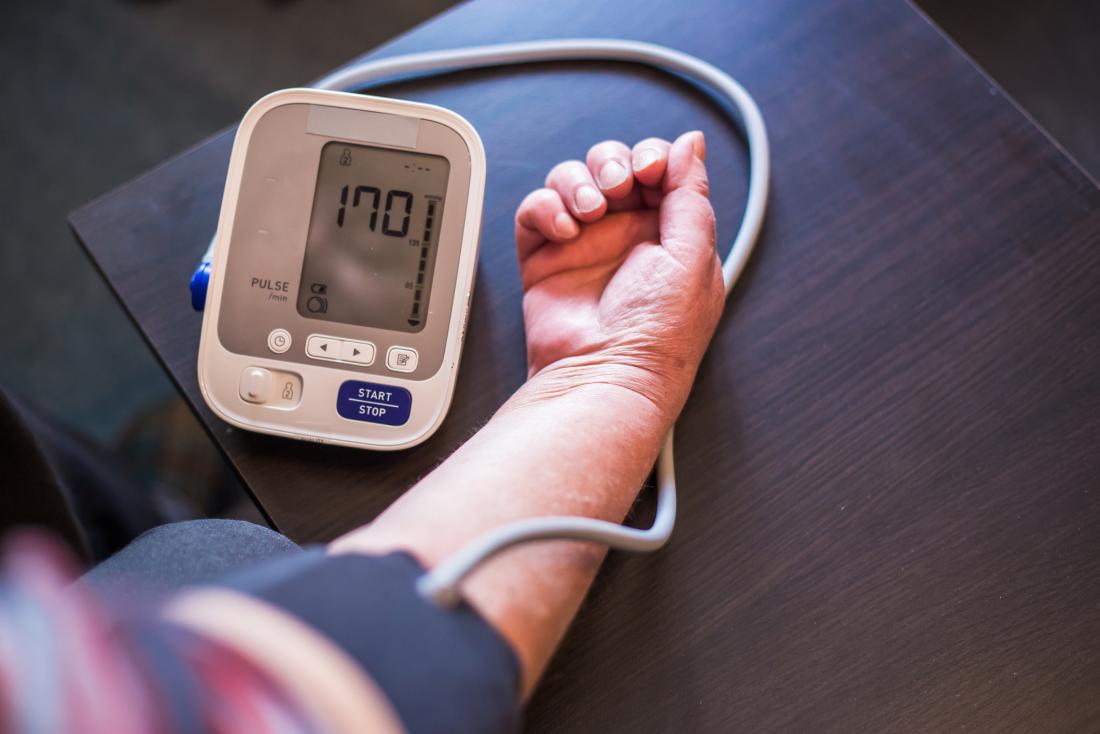High blood pressure: Could gut bacteria play a role?

In this Spotlight feature, we investigate whether the bacteria that live in our guts could influence our blood pressure. If so, could they guide future treatment?
Scientists are growing increasingly interested in the role of gut bacteria.
Each week, journals publish many study papers that examine how these microscopic visitors might play a role in health and disease.
As it stands, because the microbiome is a relatively new field of study, the full scope of gut bacteria's role in health is still up for debate.
However, it is becoming increasingly clear that the bacteria in our gut can open new avenues in our understanding of a wide range of conditions.
Scientists have studied the role of gut bacteria in conditions as varied as obesity, Parkinson's disease, depression, and blood pressure.
This Spotlight focuses on their role in hypertension. Elevated blood pressure is a risk factor for cardiovascular disease and affects almost 1 in 3 adults in the United States.
Because of this, it is vital that medical scientists unearth the various mechanisms that underpin blood pressure regulation.
One study paper puts hypertension's impact into sobering context: "Over 400?,000 deaths in the United States are related to [hypertension] every year, more than all the Americans who died through all of World War II."
Beyond standard risk factors
Although researchers have established certain risk factors for hypertension — such as smoking, obesity, and drinking excessive amounts of alcohol — there appears to be more to the condition.
More than 19% of the U.S. adults with hypertension have a treatment-resistant form of the condition, wherein medications do not bring blood pressure down to a healthful level. Also, lifestyle interventions do not work for everyone.
Some scientists are considering dysfunction of the immune system and autonomic nervous system. This is the branch of the nervous system that controls "automatic" functions, such as breathing, digestion, and blood pressure.
A relatively new addition to this list of potential risk factors is gut dysbiosis, which refers to an imbalanced microbial community.
A study in the journal Microbiome analyzed the gut bacteria of 41 people with ideal blood pressure levels, 99 individuals with hypertension, and 56 people with prehypertension.
Prehypertension refers to high blood pressure that is not yet high enough for a person to receive a diagnosis of hypertension. People in this range have an increased risk of developing hypertension in the future.
They found that in the participants with prehypertension or hypertension, there was a reduction in the diversity of gut bacteria. In particular, species such as Prevotella and Klebsiella tended to be overgrown.
Next, the scientists transplanted fecal matter from the participants into germ-free mice, which are animals that lack gut bacteria. The mice that received fecal matter from people with hypertension also developed hypertension.
Conversely, the authors of a 2019 study in the journal Frontiers in Physiology transplanted feces from mice without hypertension into mice with hypertension. This resulted in a reduction in blood pressure in the mice with hypertension.
Another study investigated the bacterial residents of pregnant women with obesity and overweight pregnant women, both of whom are at increased risk of hypertension. They found that in both sets of participants, bacteria of the genus Odoribacter were significantly rarer.
Those with the lowest levels of Odoribacter had the highest blood pressure readings.
How do gut bacteria affect blood pressure?
Although evidence is mounting that gut bacteria can influence hypertension, most of the studies to date have been observational.
This means that it has not been possible to determine whether changes in gut bacteria influence blood pressure, or whether hypertension (or the factors that produce it) alter gut bacteria.
Also, it is still unclear exactly how gut bacteria drive these changes.
Although the gut and blood pressure might not seem like obvious companions, the connection is not, perhaps, so surprising.
Many of the factors that increase the risk of hypertension — such as the consumption of alcohol and salty food — enter the body through the digestive system.
Nutrients, along with certain chemicals that bacteria produce, have the opportunity to enter the blood supply; once in circulation, the body is their oyster.
Also, the gastrointestinal tract hosts a number of processes that have the potential to play a role in hypertension, including metabolism, the production of hormones, and a direct connection with the nervous system.
Short chain fatty acids
Some researchers believe that one of the links between the gut and hypertension could be short chain fatty acids (SCFAs). Some gut bacteria produce these molecules as they digest dietary fiber.
After bacteria have produced SCFAs, the host's blood suppy absorbs them. SCFAs affect a range of physiological processes, one of which appears to be blood pressure.
Backing this theory up, one study found differences in gut bacterial populations between participants with and without hypertension. Individuals with higher blood pressure had lower levels of certain species that produce SCFAs, including Roseburia spp. and Faecalibacterium prausnitzii.
One paper in the journal Hypertension investigated the role of gut bacteria in sleep apnea-induced hypertension. Sleep apnea is a condition wherein an individual's breathing is disrupted during sleep.
The scientists simulated sleep apnea in rats. To so do, they fed half of the rats a standard diet and the other half a high fat diet. Hypertension only appeared in the rats that ate the fatty diet.
Next, they assessed the mice's microbiome and found that the high fat group had a significant reduction in numbers of bacteria responsible for producing SCFAs.
Finally, the scientists transplanted bacteria from the hypertensive rats into the rats who ate a normal diet and demonstrated normal blood pressure.
